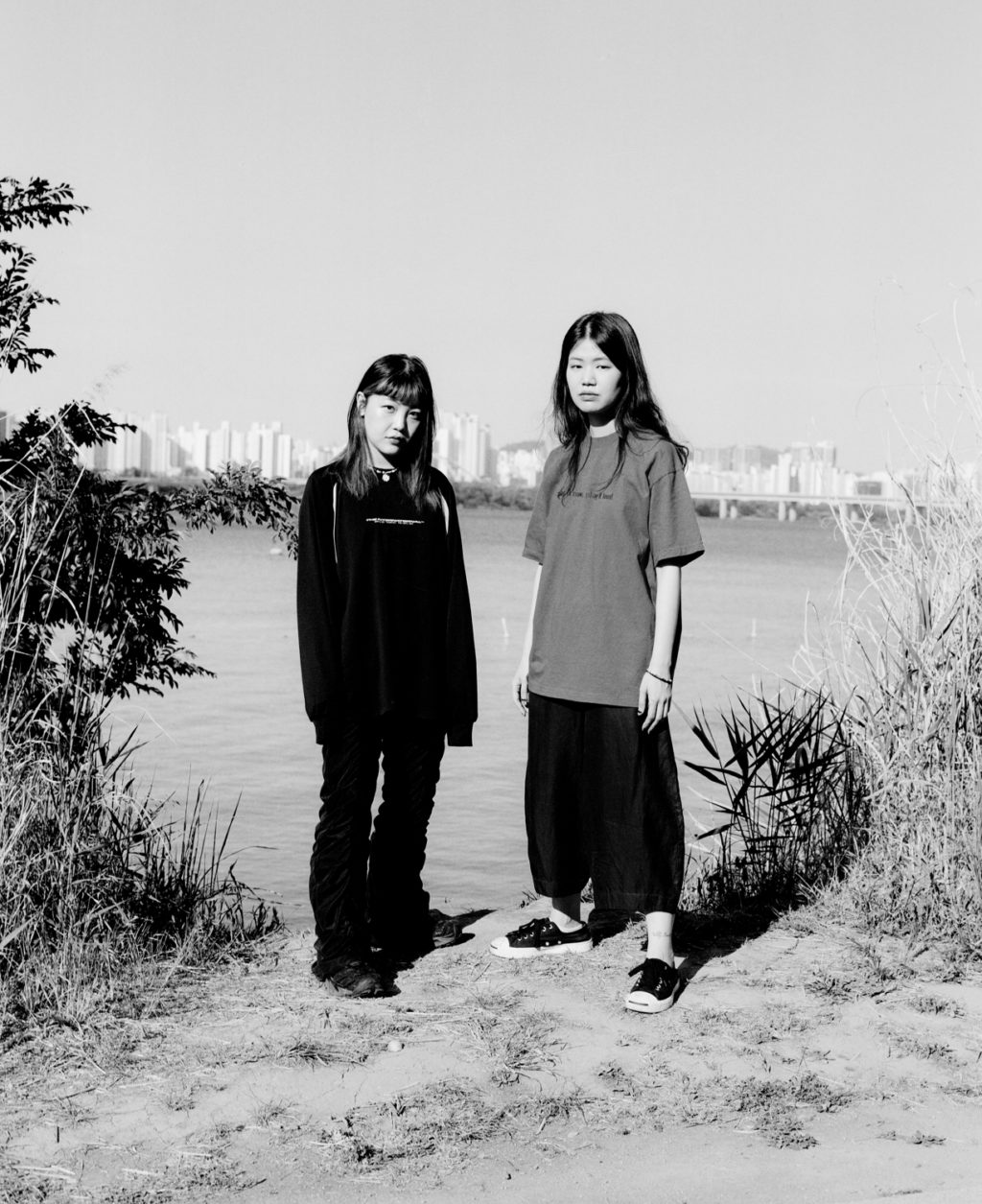

As the international popularity of Korean music continues to boom, Seoul’s subcultures are dancing to the beat of their own drum (machines). On behalf of FAR–NEAR, photographer Mary Kang speaks with Korean musicians about music beyond labels, community, and the stories they tell through sound.
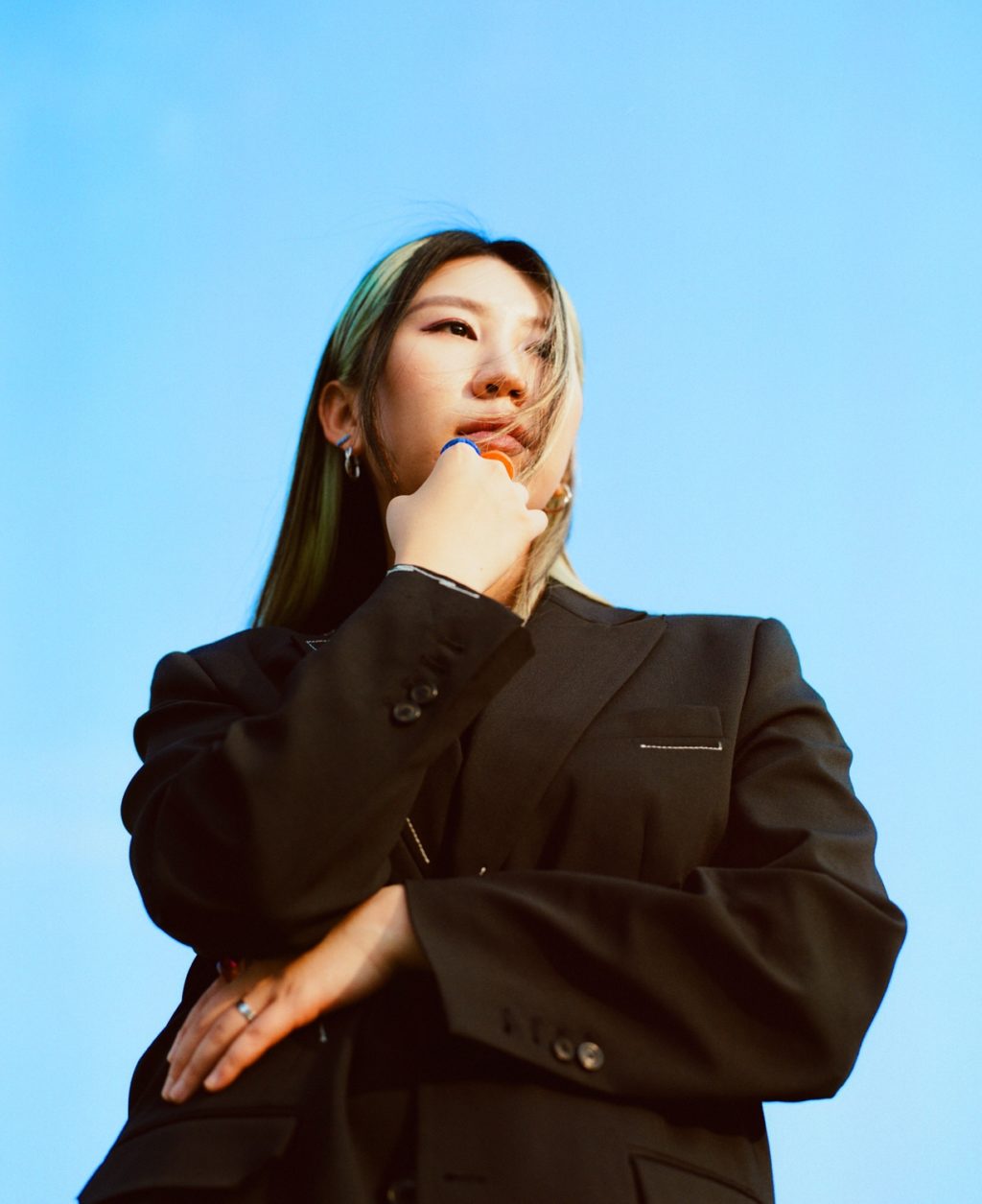
“Making music makes my mind become much lighter, as if I’ve told someone something that was weighing heavily on me.”
I want my music to be comforting and warm to listeners. I make my tracks to comfort myself, but I would be grateful if someone else could feel encouraged by them. I am not the most talkative person, so I think I communicate through my music –– making music makes my mind become much lighter, as if I’ve told someone something that was weighing heavily on me. It’s important for me to share that connection.
My music is composed of different sounds. Sometimes ballad, sometimes rock, sometimes pop. I wish there weren’t a line between mainstream and non-mainstream music. I just wish people could feel comfortable listening to any music they want.
My childhood dream was to become a pianist. However, I had to adapt when I hurt my arm while snowboarding in sixth grade and underwent surgery. I held onto my dream of working with music, but I took this as an opportunity to look in a different direction. I started to experiment with making music through computer programs. I love to research and teach myself new skills. YouTube didn’t exist at the time, so I got a lot of help from friends as well as from music teachers. I also learned new instruments little by little. It is very fun for me to learn how to play instruments I am not familiar with, and right now I’m learning the bass. I also find inspiration from paintings, art, films, photographs, books, poems, etc.
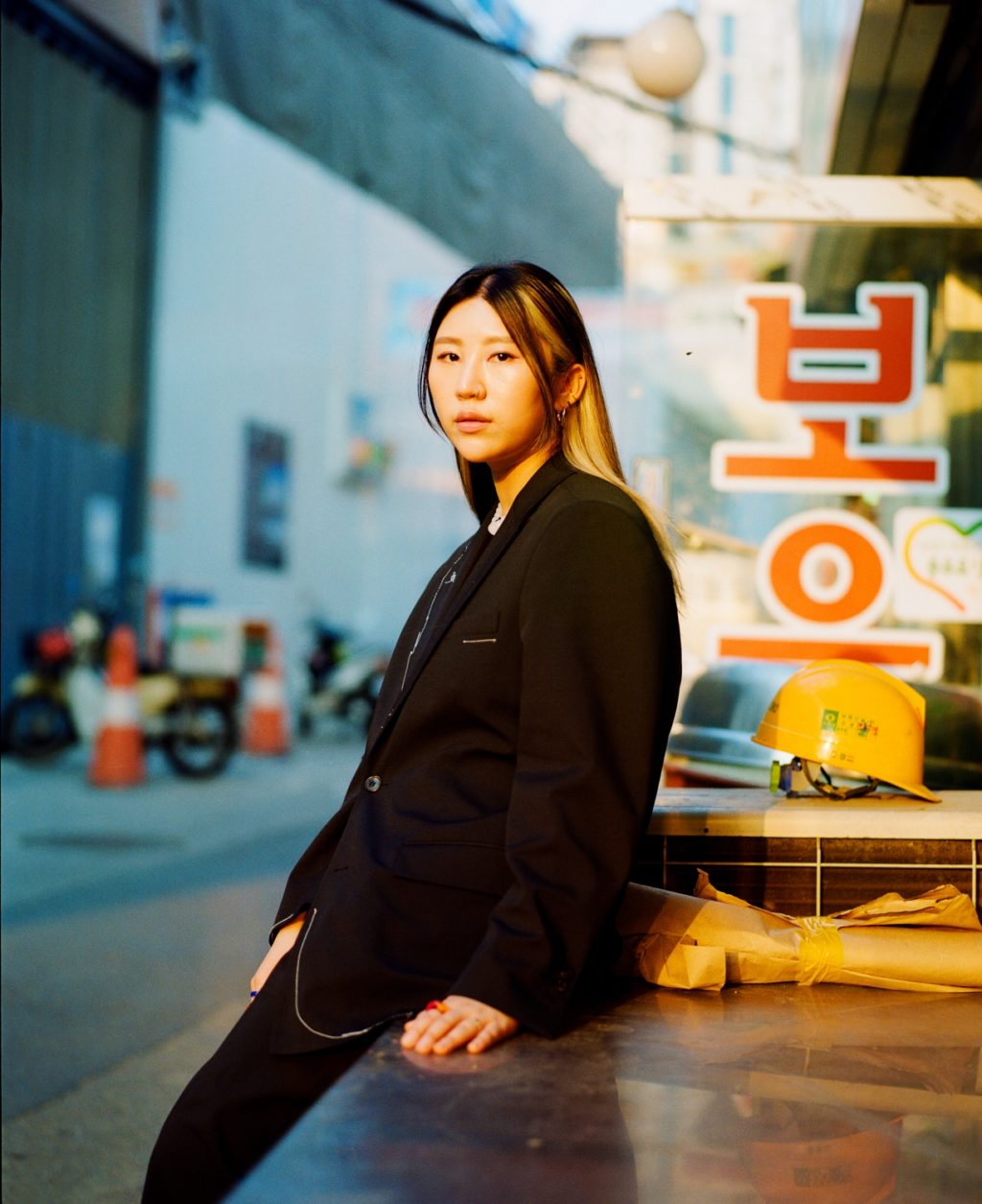
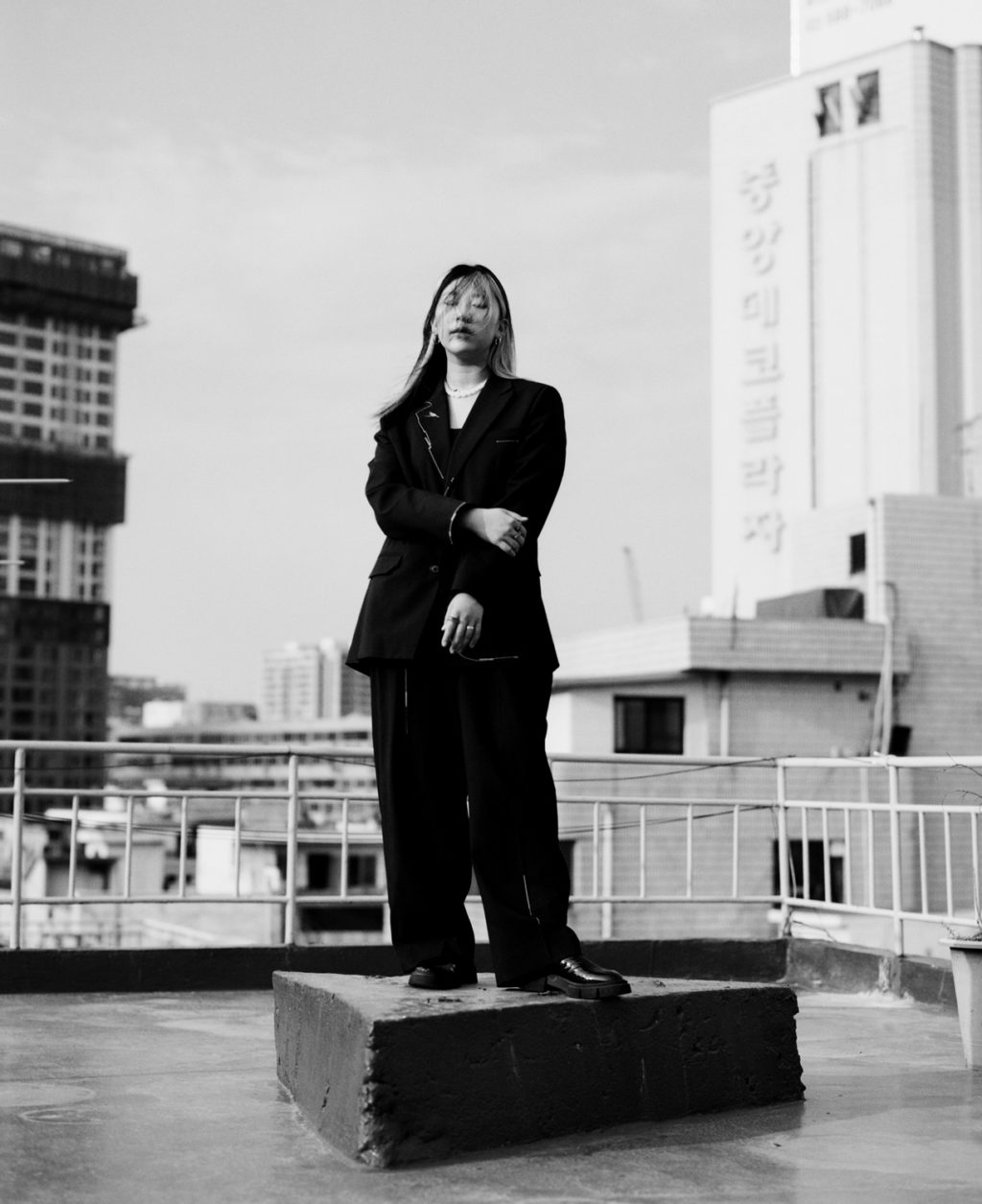
I used to be in a band which was heavily inspired by UK-based rock, like Radiohead. A lot of my friends from college also work in music. We motivate each other –– watching them work hard gives me energy to work hard, too.
I think that on a global scale, a lot of people didn’t even know about South Korea until fairly recently, so it makes me happy that South Korean music is becoming more internationally recognized. There are many good aspects of the culture here to get to know about, so I am glad that the doors seem to be opening. It still amazes me when I get DMs from international listeners.
I tend to isolate myself, but I love being active with the stage name Onthedal. It means “on the moon.” My dream is to encourage and connect with listeners rather than to become a famous rockstar. I wish for my music to offer others solace.
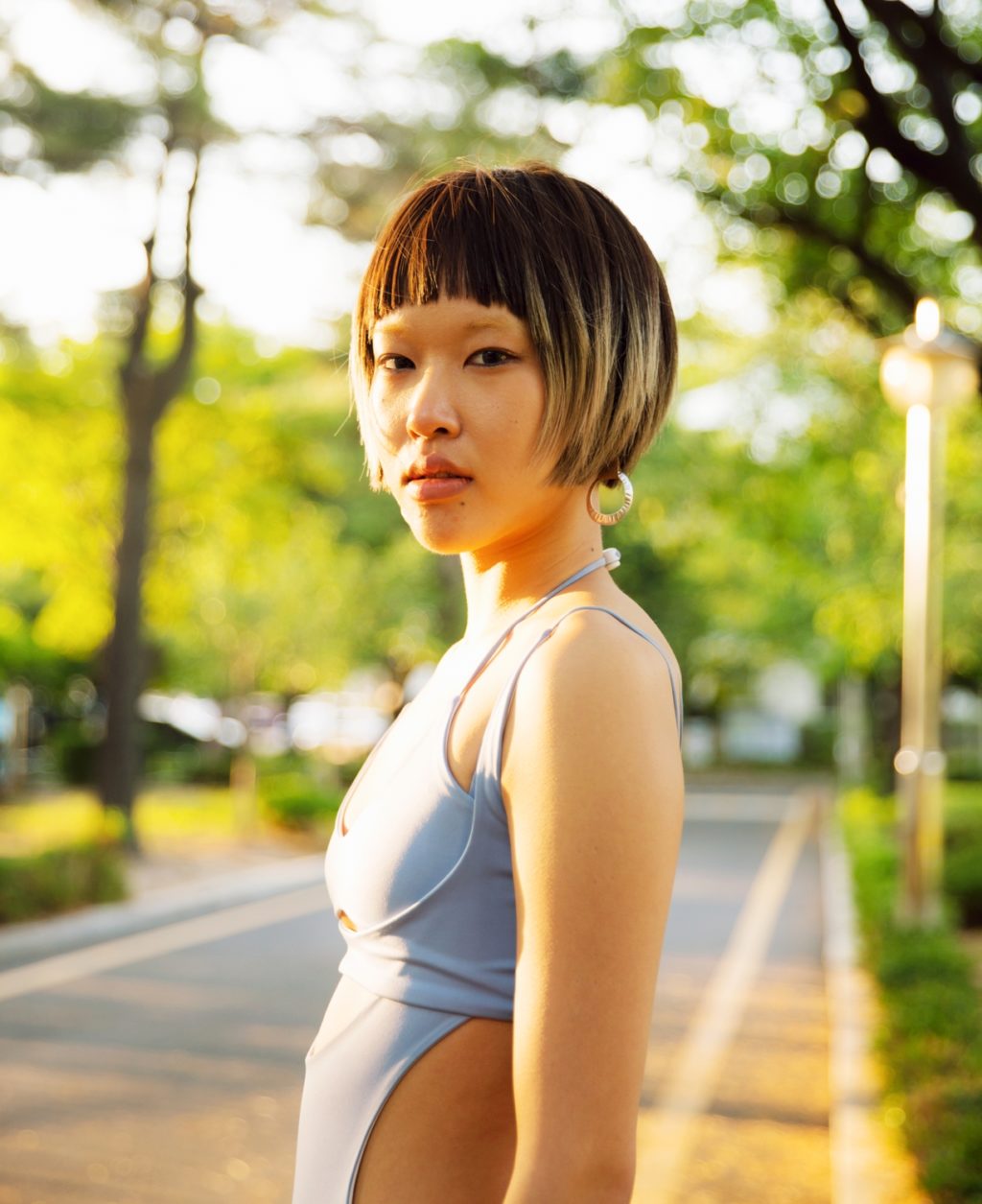
“A lot of our influence comes from friendships, from eating together, to how we communicate, to fashion, style, etc. Our friends are very special and dear to us, and we cling to each other and grow together like moss on the trees.”
In general, we love to experiment with new sounds and distort them. We tend to create music while thinking about what we love and feel from our surroundings. We think about how our sounds can be distorted to lead human beings toward healing; experimenting with weird sounds through engineering and knowledge and philosophy. We are about translating experiences to music, using music as an outlet for expression.
A lot of our influence comes from friendships, from eating together, to how we communicate, to fashion, style, etc. Our friends are very special and dear to us, and we cling to each other and grow together like moss on the trees. We all show up for one another. We sometimes throw parties and create spaces to share our art. We have a new studio space where we can create music as well as create opportunities for studying Christianity. Our faith does influence our music. The more we get to know about our friends and community, the more we hear about so much hurt and difficulty they go through. So we created this space to learn together about love that comes from beyond this world, the higher power, God.
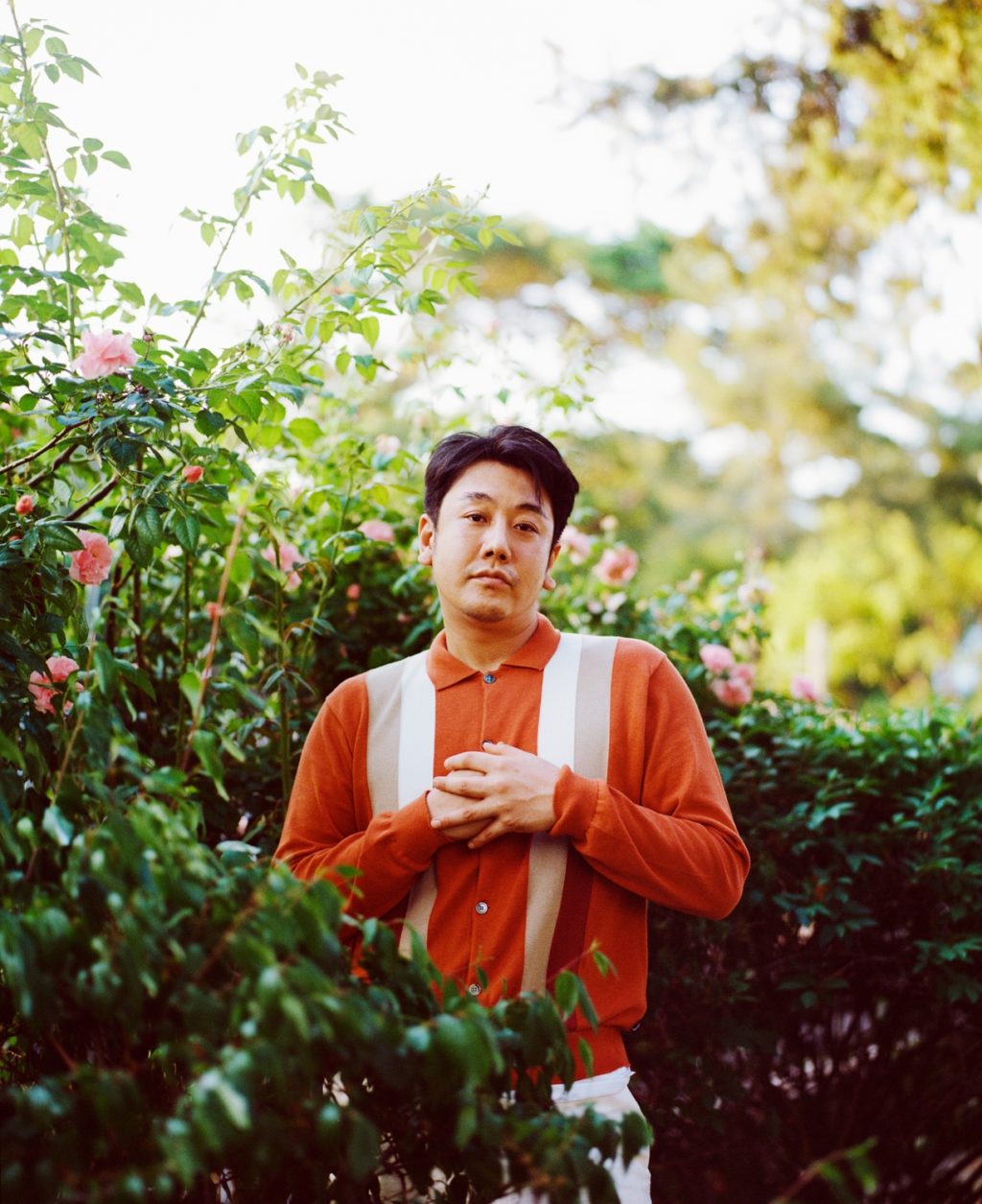
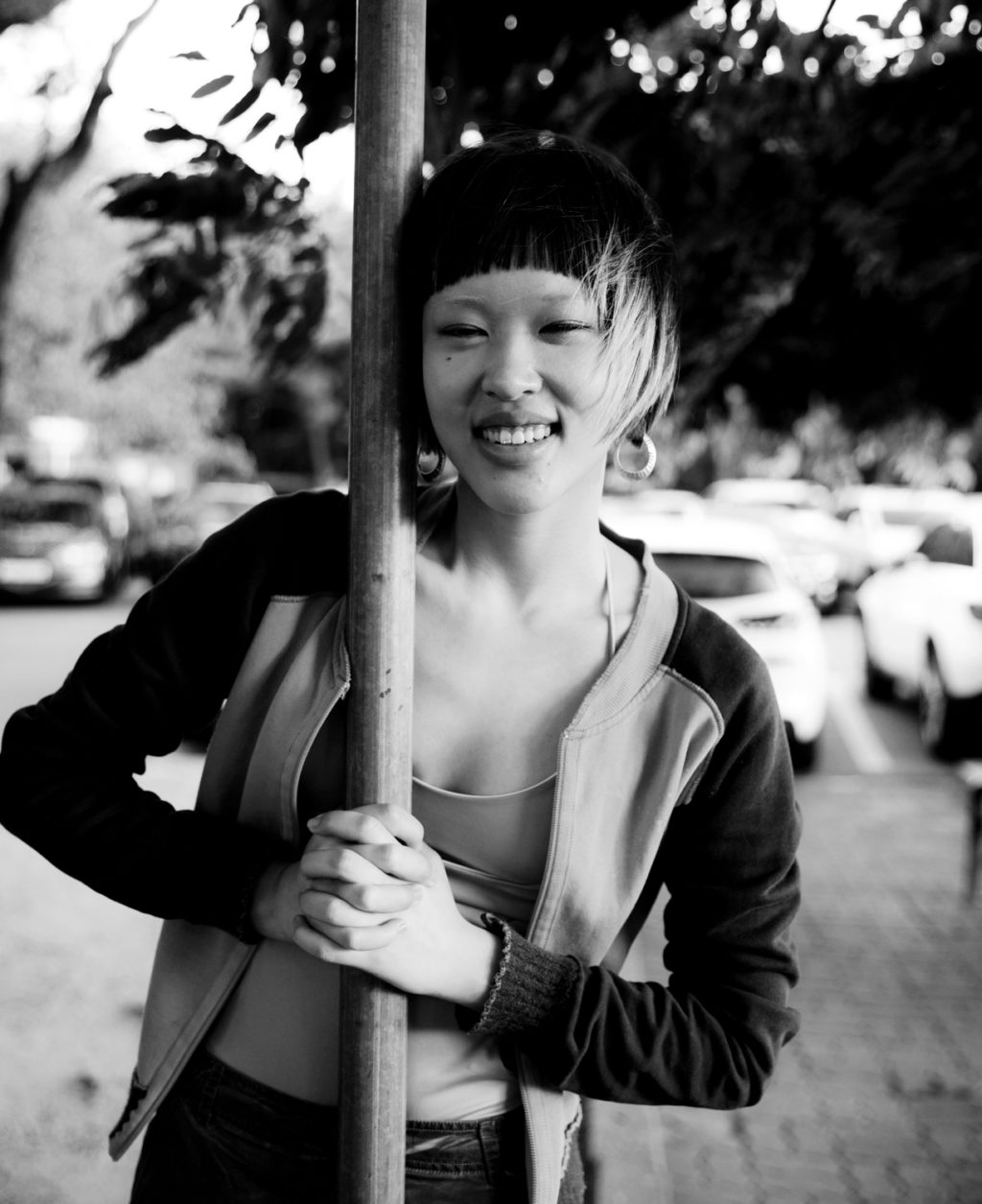
There are two different ways we like to perform. Everyone is working so hard to the point of exhaustion. So it is also important to create a space where we can all just have fun and feel a sense of release. To us, music is about sharing. There are times we perform for the expectations of our fans. But there are also times we perform and create space for just being, where the performers and audience don’t have any obligations for each other, where we can simply be.
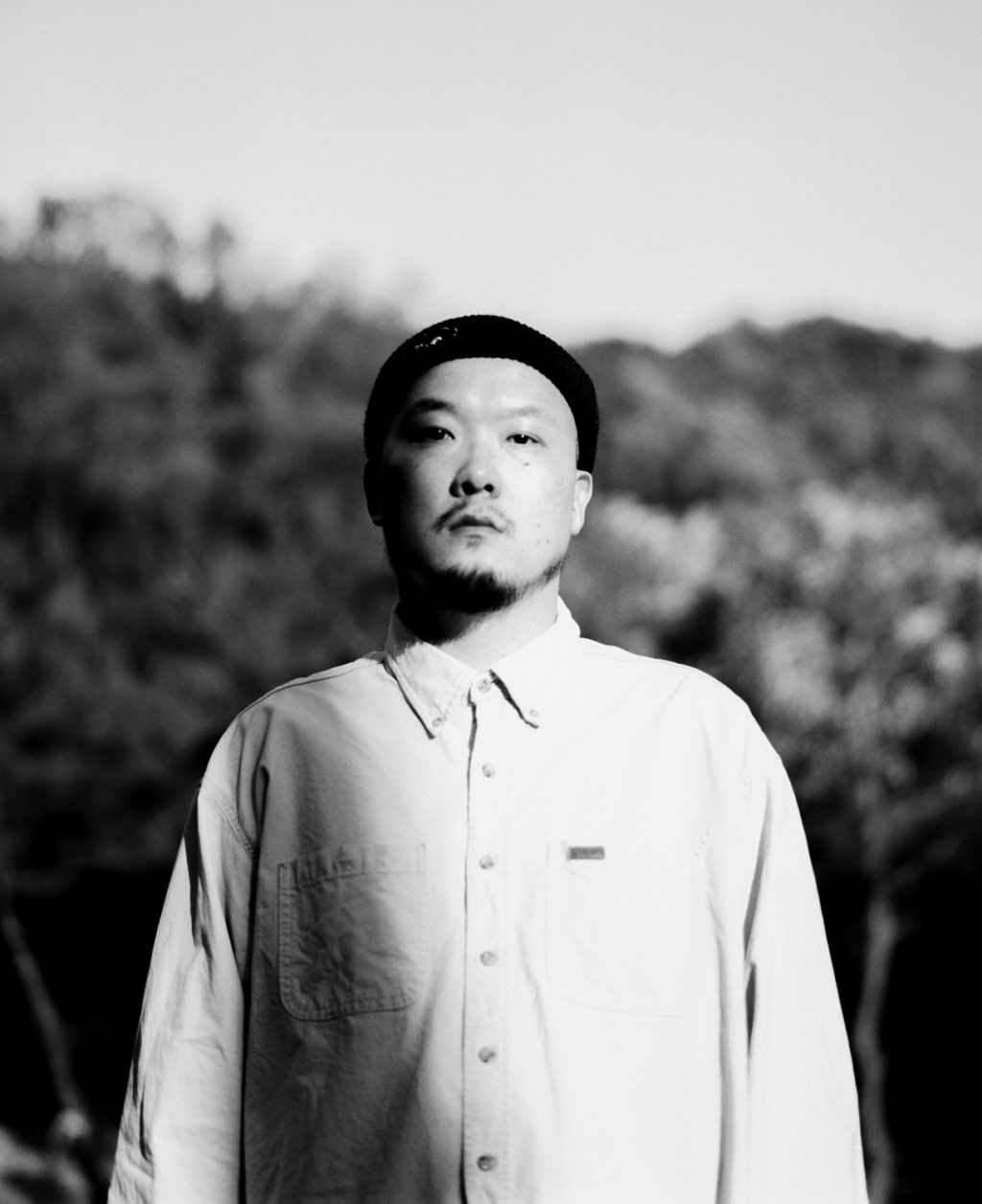
“These days, Korea seems to be embracing diverse sounds from our own local music scene.”
I started making mixes of ‘80s and ‘90s Korean music about five years ago for fun. I love the culture and sound of that era, and creating these mixes came from wanting to reintroduce this sound and vibe to the current music scene. City Pop also happened to be on the rise around the same time. I find the lighthearted way that we can dance to this type of music really fun.
I often play my mixes at a club in Seoul called Channel 1969. Although I am not the most social person, I feel community there. I tend to focus on forming deep bonds with just a few people. There are times I do collaborate with other artists that I admire. I am thankful that we can share good feedback with each other and show up for each other’s sets. I feel supported when my close friends I’ve known for a long time show up to my set. I am also thankful for my listeners. There are times when people come up to me and say they came to see my set, and I am overwhelmed with gratitude.
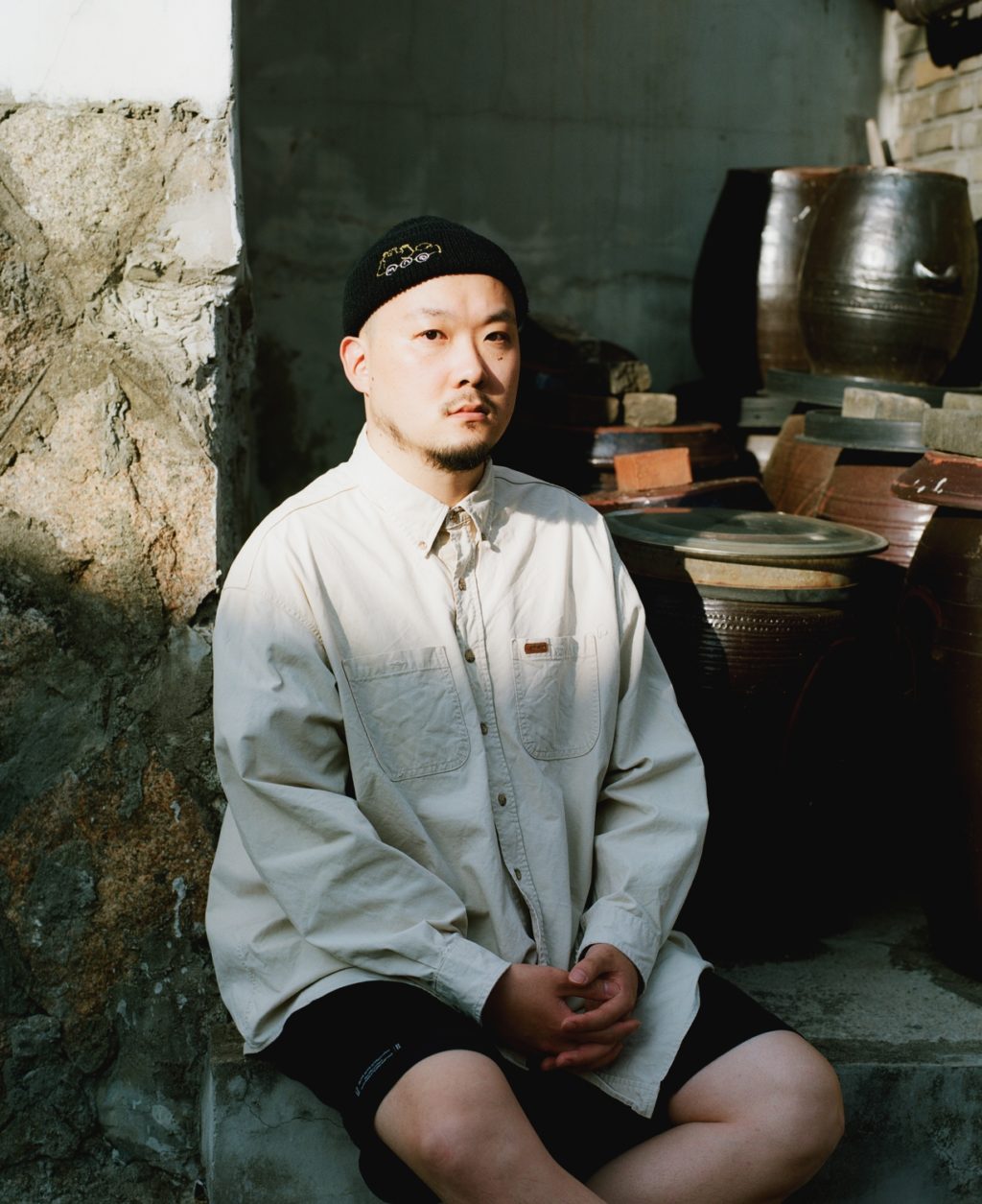
Before, looking at the lineups at music festivals in Korea, there seemed to be more of a focus on international musicians. But these days, Korea seems to be embracing diverse sounds from our own local music scene. I feel elated that we are increasingly proud of our own musicians.
There are still many different sounds I want to explore. I want to be more creative. There are many sides I haven’t shown before and I am afraid to be pigeonholed into one field or genre. As I experiment with completely different sounds, I hope that can still be embraced. I have also been into rock for a long time, and recently I have been exploring that field as well. Currently I play drums for the band Galaxy Express. That feels like a full circle.

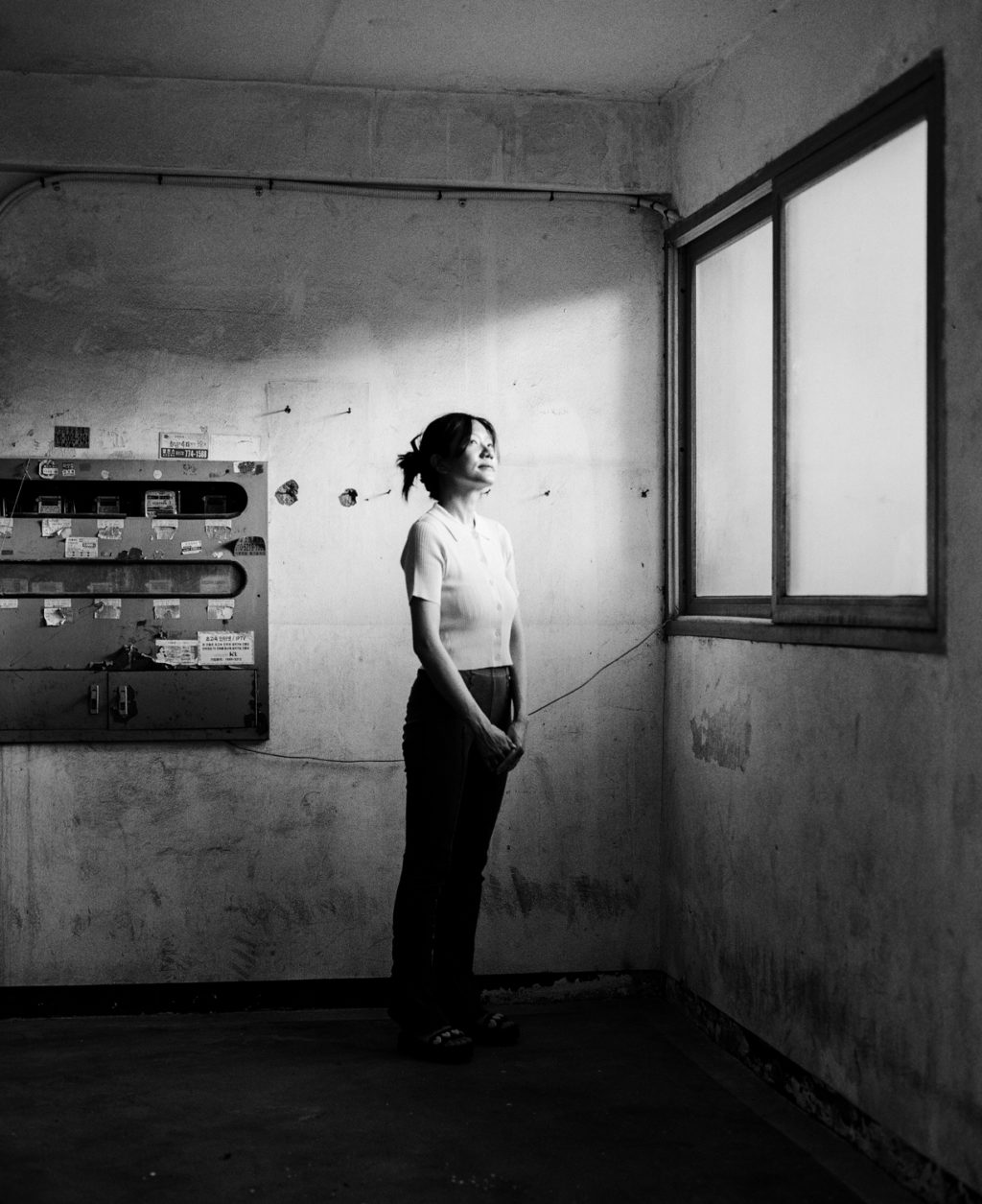
“Indonesian music changed my thinking and my life.”
I collect the sounds of various Asian countries. Especially while traveling, I like to find cassette tapes and LPs.
Channel 1969 Club is located in Yeonnam-dong, Seoul. Without it, I wouldn’t be where I am today. Channel 1969 gave me many opportunities. Thanks to them, I’ve built up the confidence to play anywhere. The 7545 Crew has also given me a lot of encouragement. They are colleagues and DJ teachers.
Korea is a small country. However, the Korean music scene is very large and diverse. Korean DJs play abroad and are also recognized around the world. I want the Korean music scene to continue to grow further.
As a child, I liked the British subculture “MOD.” That’s how I came to like the music of Motown or Stax labels. I also really liked the “Northern Soul” subculture. I started collecting records as a hobby, but now I do so as a DJ. Six years ago, I played in Jakarta and met an Indonesian friend who also likes MOD subculture. That’s where I first heard Indonesian music. Indonesian music changed my thinking and my life. So now I’m playing Asian music.
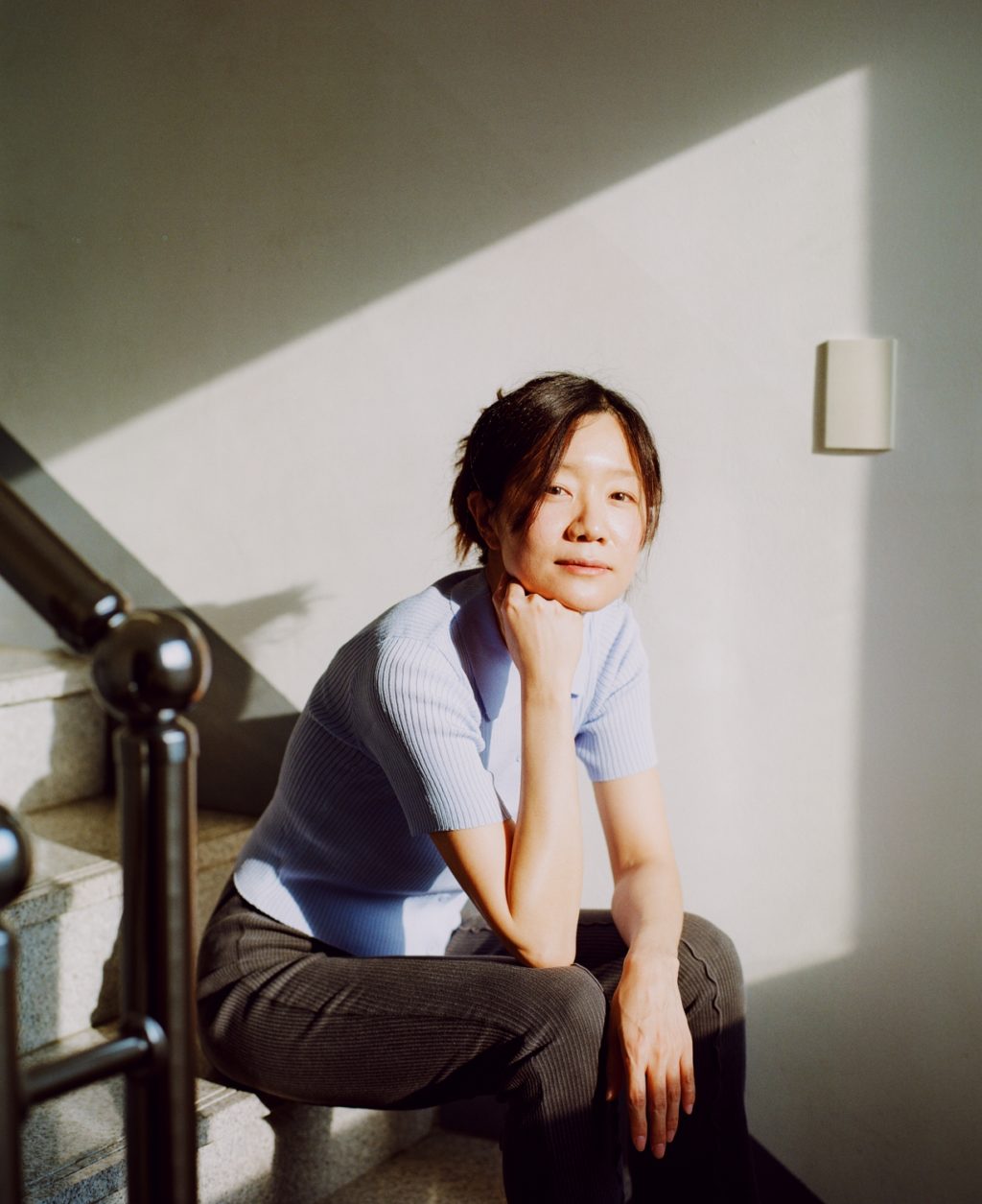
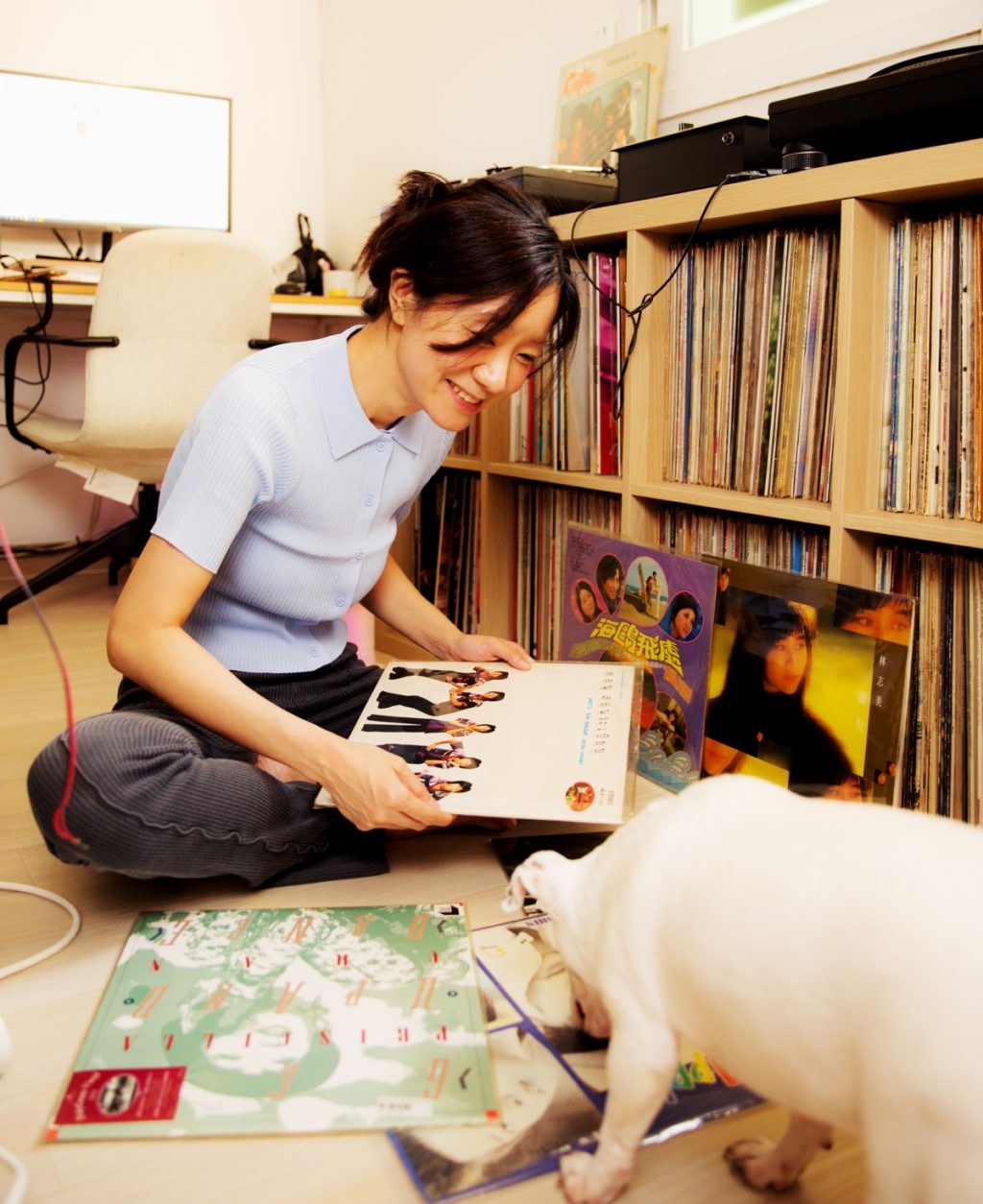
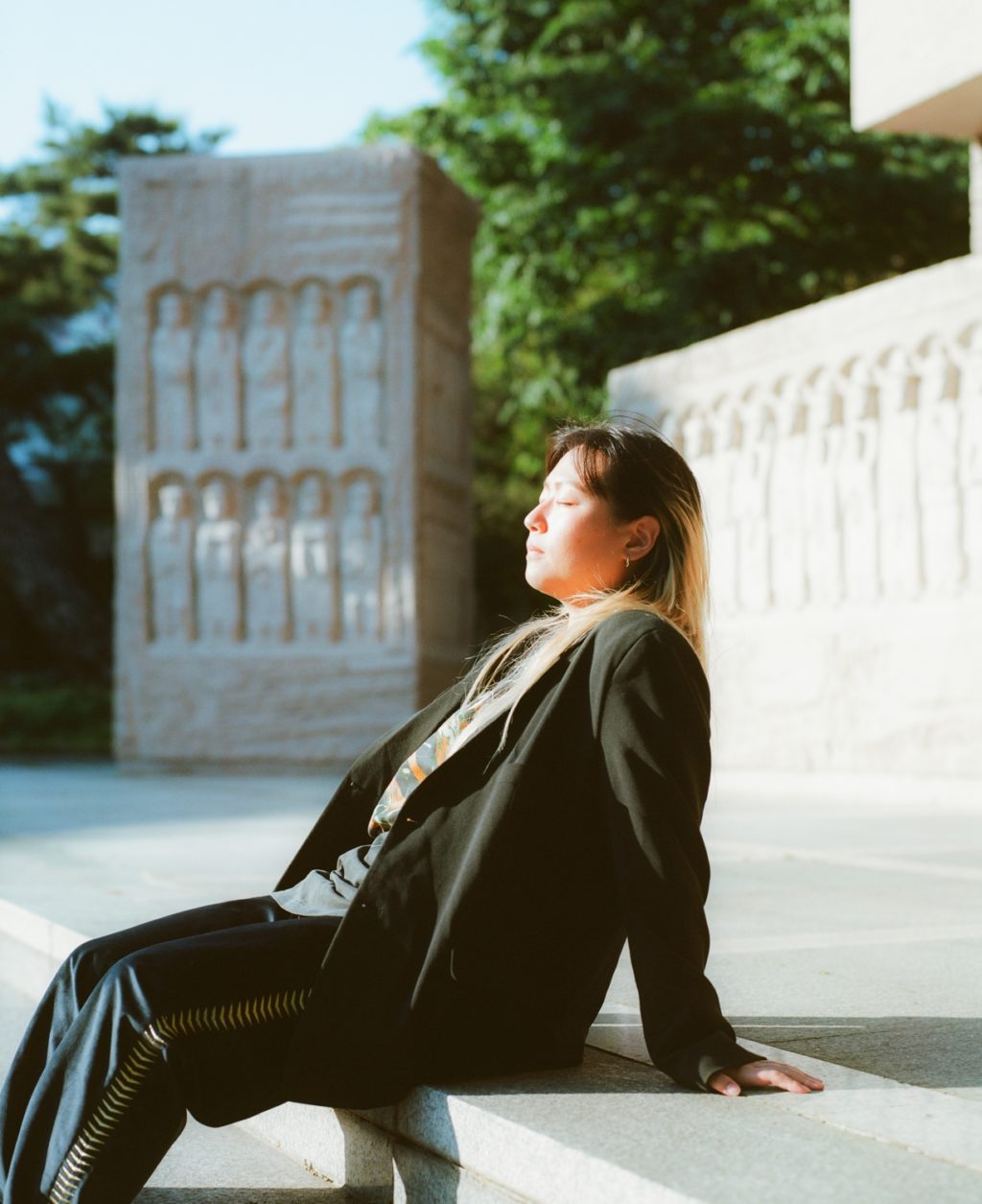
“I want to be an aid to the queer community here and to help make it a safe place for women and queer folks.”
I’ve been in the music scene for around six years. I struggled in the beginning with how I wanted people to perceive me. I used to play so many different things, trying to be a very serious underground DJ. Eventually I met people who play UK Bass at Cakeshop Seoul in Itaewon and found a true community there.
I want to be an aid to the queer community here and to help make it a safe place for women and queer folks. As a female queer DJ, I find so much inspiration from other queer musicians and female artists. This doesn’t mean I want to exclude men, but I want women and queer clubgoers to feel safe and enjoy good vibes.
The music industry here is slowly becoming more inclusive. There is a party called Shade Seoul that fosters queer DJs. The younger generation in Seoul seems to be more open minded.
I find inspiration in so many places. I watch a lot of interviews with artists that I am interested in, not just music-wise. People who are empathetic or who have a mission to help the community out, and to help people feel a sense of belonging.
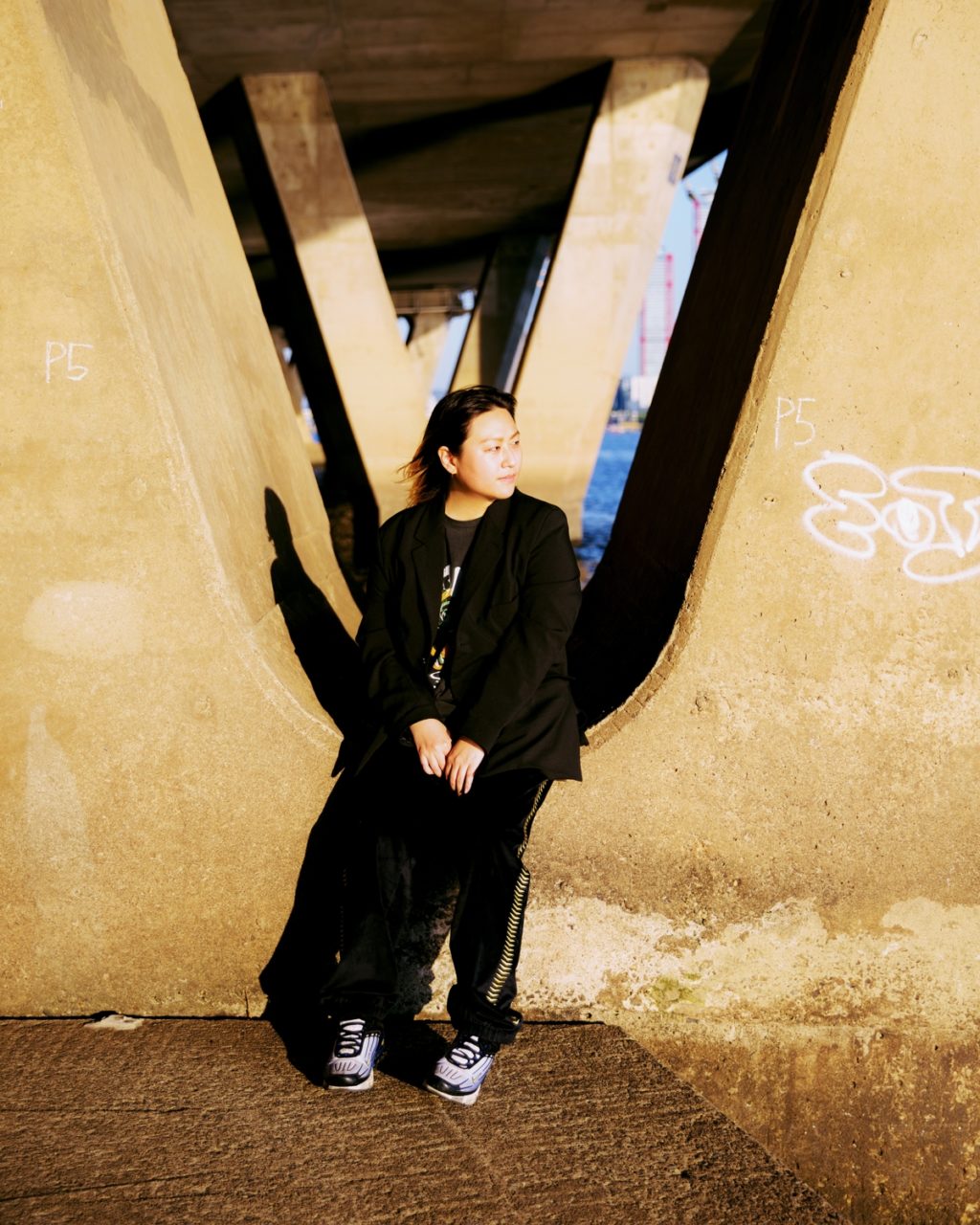
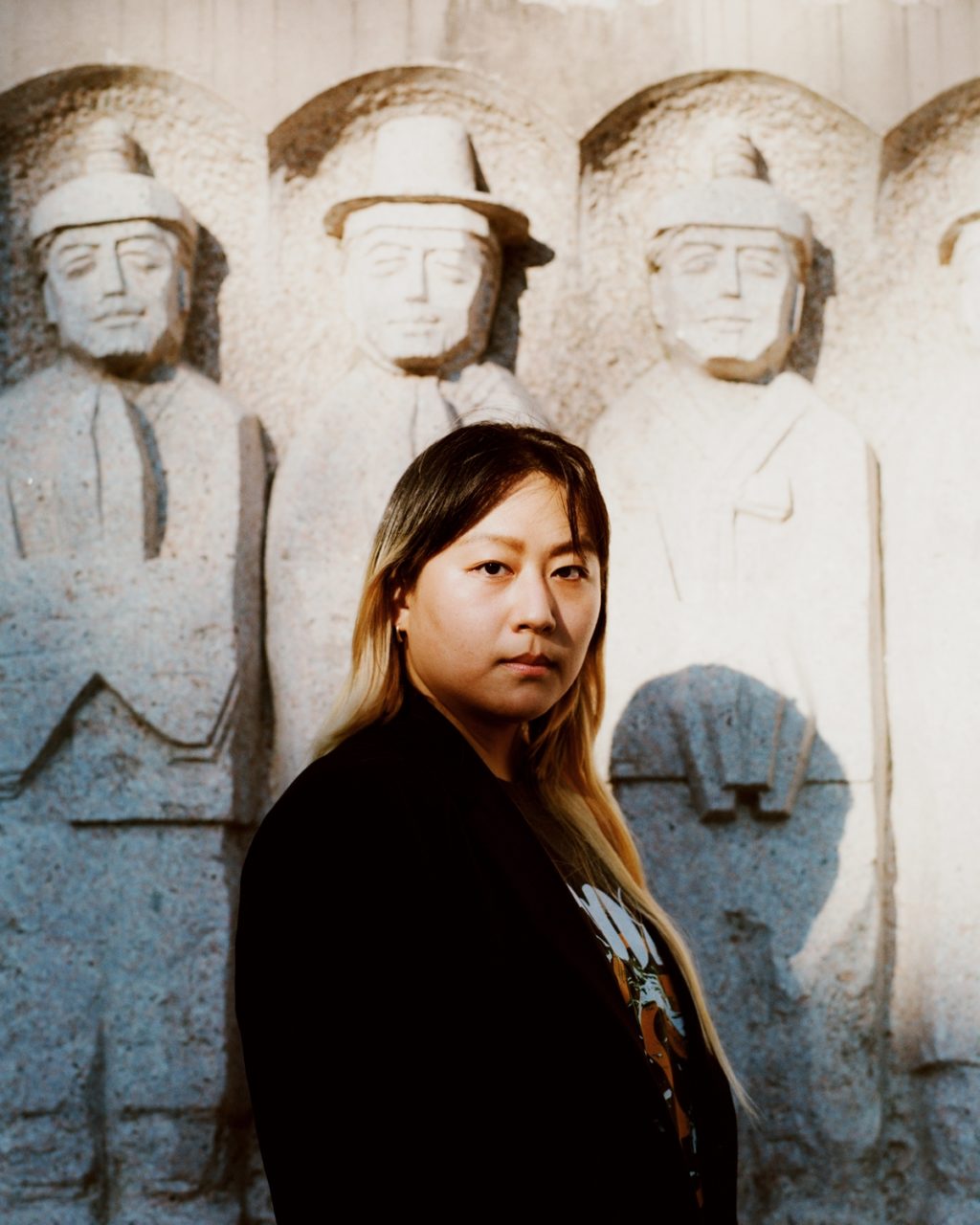
Music doesn’t always have to be serious, although sometimes I can think about music too seriously when I DJ. But I try to put meaning and intention to what I do.
The Korean music scene is very diverse. So much fresh new talent appears every week. I really think everyone should DJ and shouldn’t be picky about their music. I also hope the crowds can be more open minded to every DJ who works really hard and not be so quick to judge them. DJs can play whatever the fuck they want! We shouldn’t have to limit ourselves.
Try to play different types of music, try to get different crowds, don’t take yourself too seriously, people are here to have fun with your set. Don’t think that what you play is only underground. I played a lot during the pandemic. People didn’t go out that much. I played everything I wanted and people still liked me. Mostly in Cakeshop Seoul –– it’s one of the only places where you can play anything.
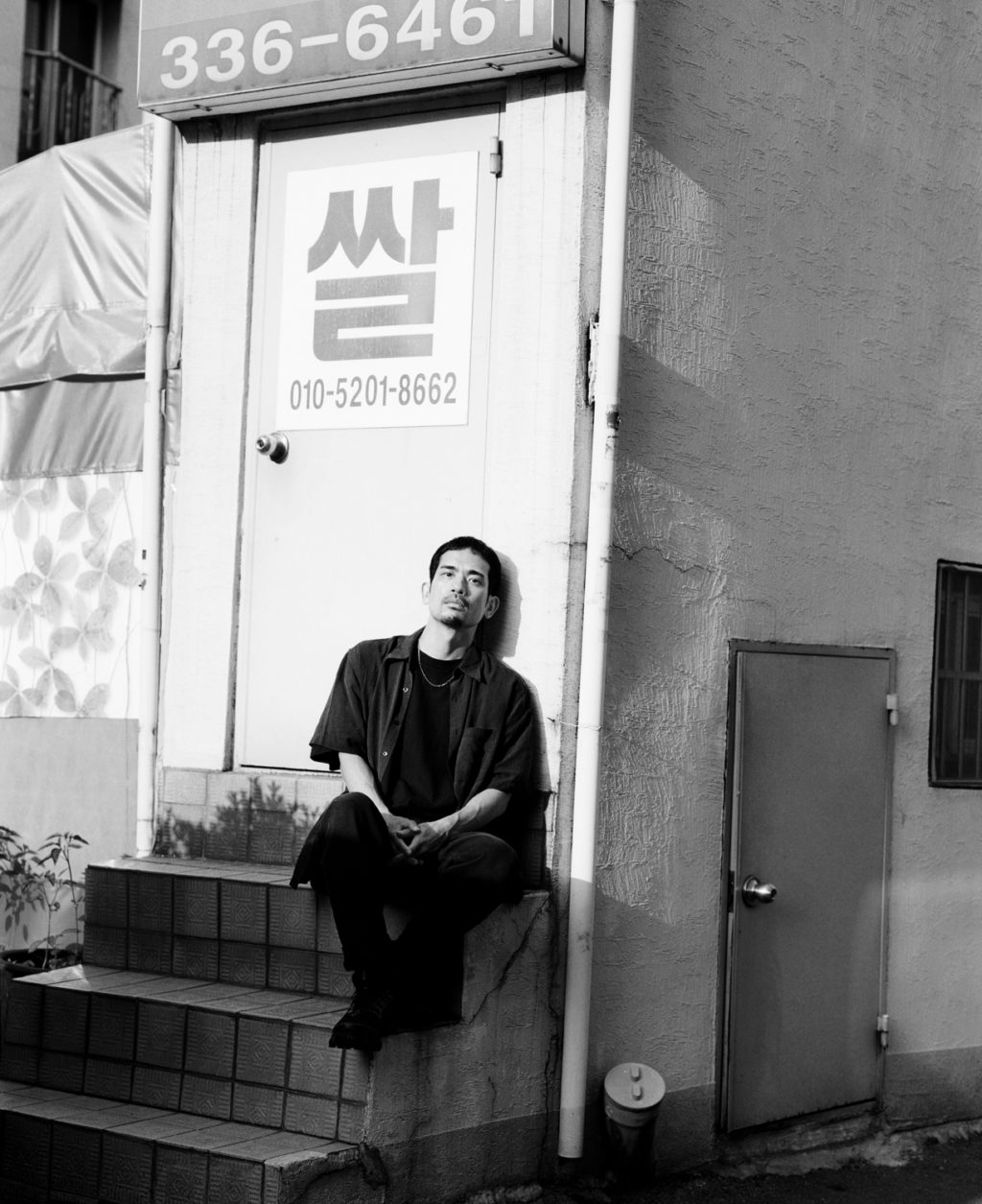
“As I get older I find myself looking back more than looking ahead.”
It’s hard to pinpoint a single genre that describes my music. If I had to try, I’d describe it as experimental electronic music with East Asian traditional sounds, specifically using Korean traditional instruments. I am into merging sounds. Doing so gets unexpected results. My identity is a big part of my process as well. Being Korean and having lived in London, these experiences are expressed through my sound.
“Inner-self EP,” my latest EP, released in the beginning of June, is about looking into what happened in the past and present, and about self-reflection. As I get older I find myself looking back more than looking ahead. I lost my mom in March of 2021 and it made me think about where she is now. That led me to think about the lives of people from the past and those of us who are living now. My mom is gone completely, but somehow she continues to exist by constantly impacting me. She’s still giving me something. So many people have left us, but we somehow still feel their influence. I was making music while she was sick and it made me think more about how our existence impacts each other. I also consider our ancestors in my latest music video and sample old music.
I started playing music three years ago and taught myself through Ableton Live. The only previous musical experience I had was from playing piano as a child. When I moved to London I got into the party scene there and that influenced me a lot.
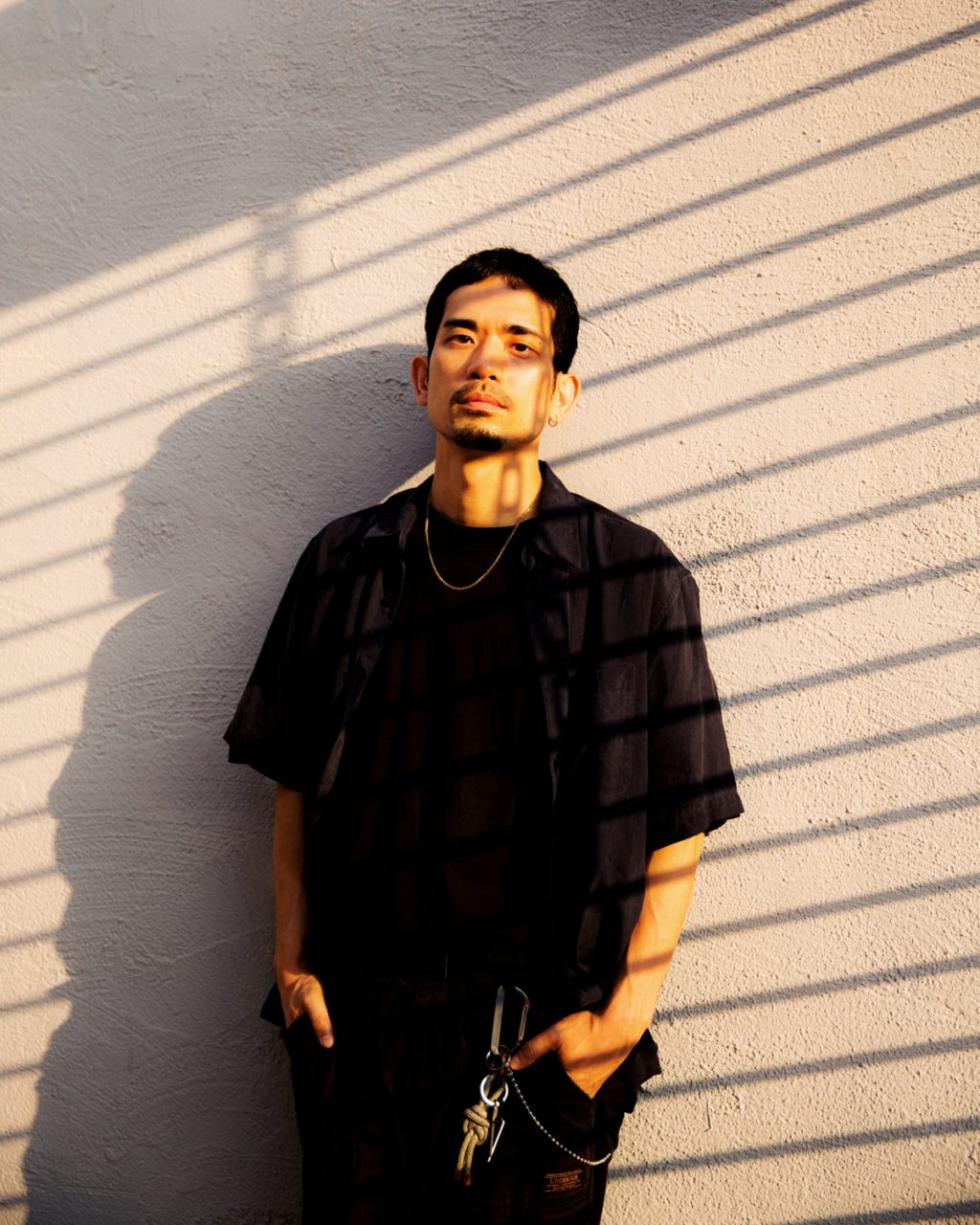
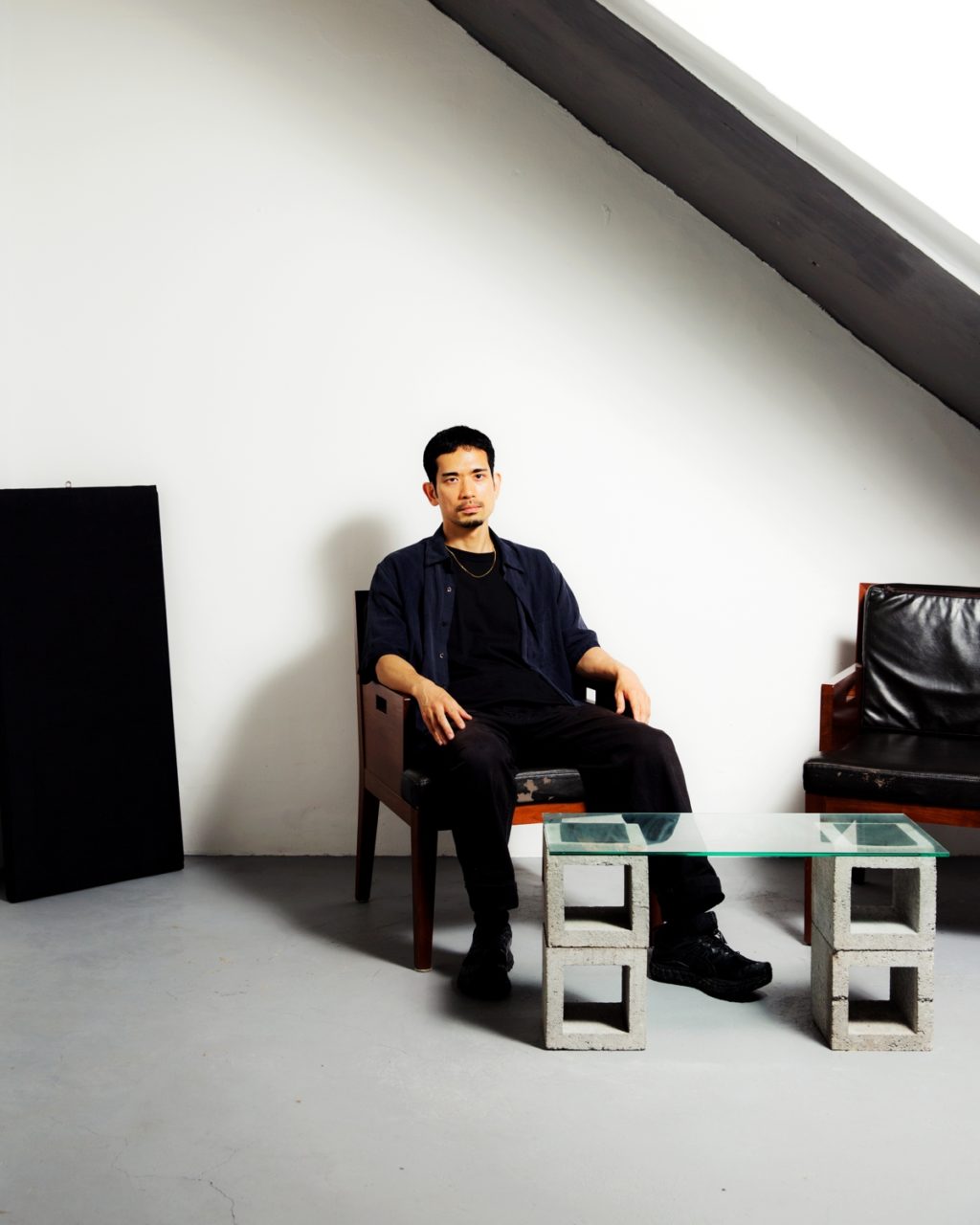

“We really like fantasy –– the unreal.”
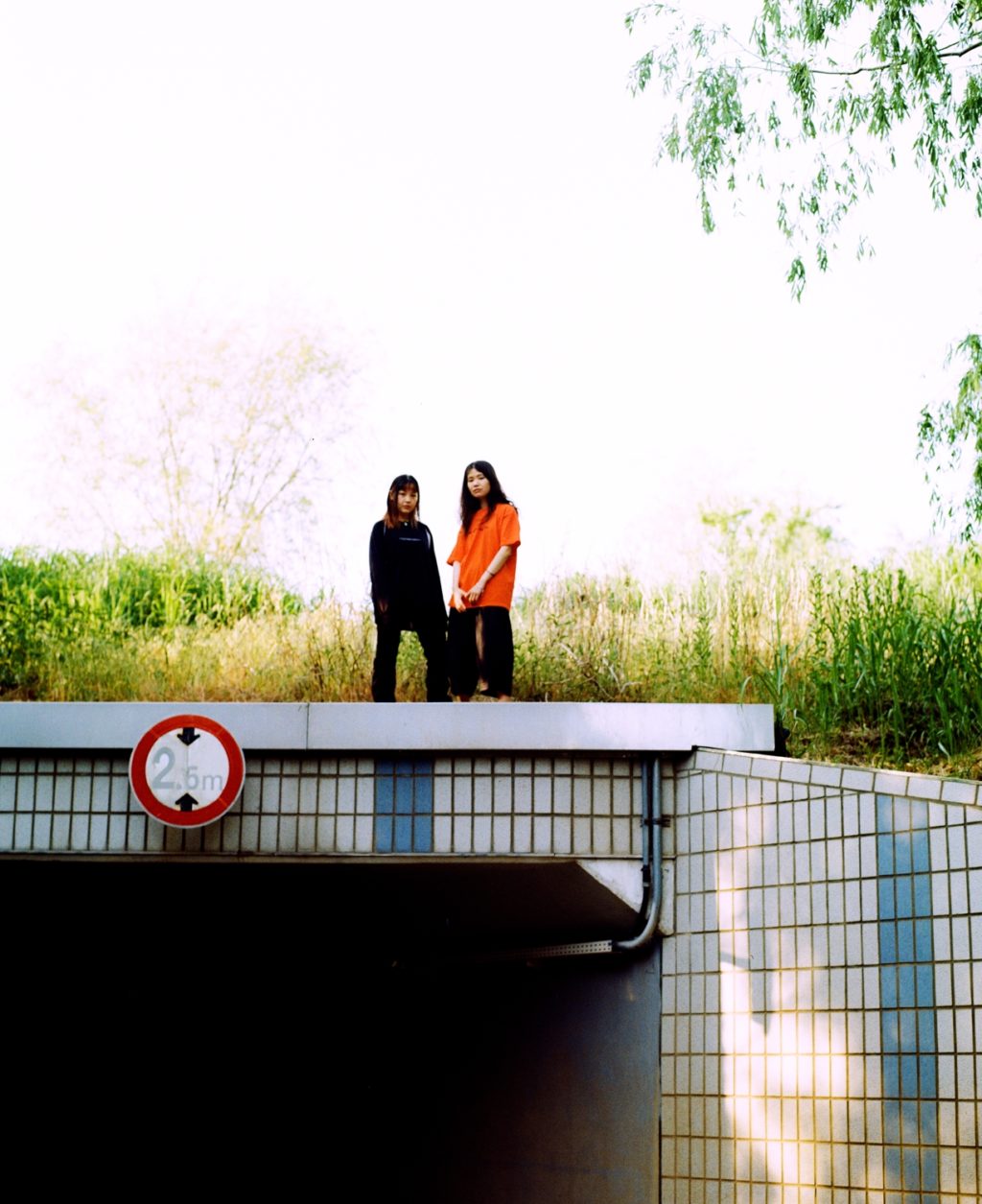
SoundCloud’s AI imposed the label “ambient” on our music, but we don’t make pure ambient. We might describe our sound more as leftfield ambient. Rather than just focusing on drone sounds and calm sounds, we want to create dancey sounds too.
We met through mutual friends and we hung out together a lot through the dance club scene. The more we talked and got to know each other, the more we realized we had similar tastes. We felt a great synergy and always talked about music together, recommending tracks to each other, talking about the kind of sound we wanted to create.
Our music is all about storytelling. Before we create sounds, we come up with visuals and a storyline. We get inspired by things like Uman’s (one of our duo) drawings, movies, and other visuals. There is one piece by Uman where a person is falling asleep inside a colorful tiled bathtub. We began to develop a story around what that person might be dreaming about inside that bathtub. We really like fantasy –– the unreal.
We don’t make music for the feedback, but it does encourage and motivate us. There are people who find electronic music difficult to understand, but we believe you shouldn’t feel like you have to be knowledgeable about it to simply enjoy and feel it.
We feel proud of the Korean music scene: K-Pop these days is loved internationally. Beyond K-Pop, there really is a diversity of music in Korea. I hope more attention can be given to this other music, even within the country.
I don’t like the term underground, I personally prefer the term subculture. Some terms seem divisive. The term “underground” has a different connotation here. In Seoul alone, there are many subcultures nestled within subcultures. There are so many genres, scenes, and artists that go undiscovered. But they’re there. It’s also exciting to think how much there is still out there to discover.

Mary Kang
Onthedal
Y2K92
Yonghyeon
Mimi
Yuzo
Jaeho
Salamanda
Ariana King
Lulu Yao Gioiello

